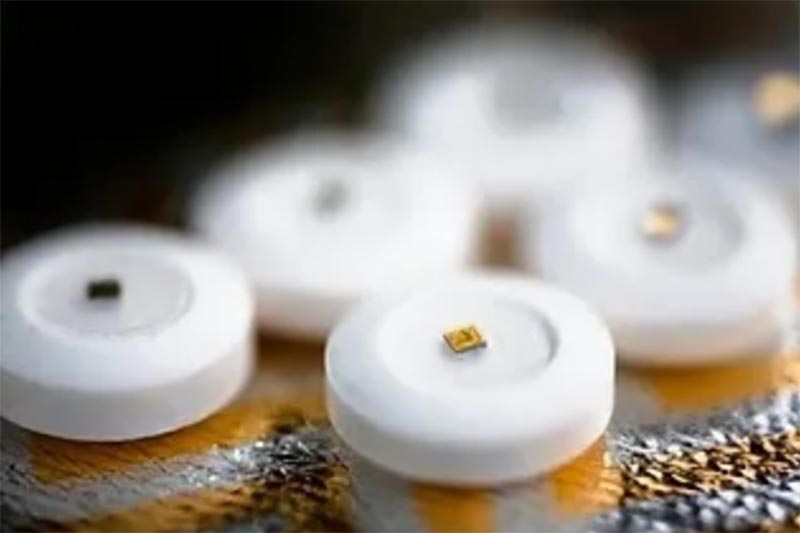監視する薬: マイクロチップが埋め込まれた錠剤の承認が間近
Look out, your medicine is watching you
ロイター 2010.11.08
注意して。薬があなたを監視している
ノバルティス社は、「スマート・ピル」テクノロジーのコンセプトに今一歩近づいており、今後18ヵ月以内に、マイクロチップを埋め込んだ錠剤の先駆者として監査認証を求める予定だ。
この技術の最初の適用プログラムは、スイスにある会社が開発した臓器移植患者の拒絶反応を避けるための薬に用いられる。
しかし、ノバルティスの国際開発部門のトップであるトレヴァー・マンデル氏は、このコンセプトは他の多くの錠剤に適用できると考えている。
「我々はこの臓器移植用医薬品で、チップを埋め込んだ薬剤で一歩前に進んだ。今後18ヵ月以内に、少なくともヨーロッパにおいては、監査機関から認証されると確信している」と、マンデル氏はニューヨークでロイターに述べた。
「これは期待以上のものとなることを約束する」と彼は付け加えた。
今年1月にノバルティス社は、バイオメディカル企業の米国プロテウス・バイオメディカル( Proteus Biomedical )が開発して権利を持つ、錠剤にチップを埋め込む技術( chip-in-a-pill technology )へのアクセスを確保するために、2400万ドル(約 19億円)を支払うことに合意した。これにより、この技術でライバル企業の一歩先を取った。
生物工学で作られたこの「飲み込むことのできるチップ」は、胃酸によって起動し、患者の皮膚に装着されている小さなパッチに患者の情報を送る。そのデータは、スマートフォンや、あるいはインターネットを通じて医者のもとに送ることが可能だ。
ノバルティス社のマンデル氏は、この最初のブロジェクトの目的は、患者が正確な時間に薬を服用することを確実にするためのものだと言う。腎臓移植患者などにおいては重要な問題だという。
しかし、長いスパンの中では、この「スマート・ピル」のコンセプトの他のタイプの薬剤への適用もどんどんと拡大させていきたいと考えているとマンデル氏は述べている。プロテウス社のチップ埋め込み技術を有効に用いて、心拍数、体温、薬が正しく服用されているかなども把握していきたいという。
なぜなら、すでに発売されている既存の薬剤にチップを埋め込むこともできるので、新製品の承認を受けるための全面的な臨床試験を行う必要がないからだ。新薬がオリジナルと同じものであることを示すためには、全面的な臨床試験の代わりに、いわゆる生物学的等価性テストをおこなう。
問題点として挙げられるのは、患者の医学的な個人データの保護だ。マイクロチップは、患者の体内から直接、無線や Bluetooth によって情報として送信するのだ。
「監査機関は我々のスマート・ピルの概念を大変に気に入っており、これは我々の励みとなっている。ただ、監査機関は、我々が個人のプライバシーデータの問題にどのように対処するかということを知りたがっている」とマンデル氏は言う。
Look out, your medicine is watching you
Tweet This Share on LinkedIn Share on Facebook 6diggsdiggRelated NewsPfizer arthritis drug succeeds in late stage trial
Sun, Nov 7 2010
Human Genome pins blockbuster hopes on lupus drug
Fri, Nov 5 2010
Black patients fare well on Vertex hepatitis C drug
Sat, Oct 30 2010
Vivus shares soar on weight loss drug optimism
Fri, Oct 29 2010
Some tumors may resist promising lung cancer drug
Thu, Oct 28 2010Related TopicsHealth »
Stocks
Novartis AG
NOVN.VX
CHF55.35
-0.75-1.34%
12:31am UTC+0900
By Ben Hirschler
NEW YORK | Mon Nov 8, 2010 5:29pm EST
NEW YORK (Reuters) – Novartis AG plans to seek regulatory approval within 18 months for a pioneering tablet containing an embedded microchip, bringing the concept of “smart-pill” technology a step closer.
The initial program will use one of the Swiss firm’s established drugs taken by transplant patients to avoid organ rejection. But Trevor Mundel, global head of development, believes the concept can be applied to many other pills.
“We are taking forward this transplant drug with a chip and we hope within the next 18 months to have something that we will be able to submit to the regulators, at least in Europe,” Mundel told the Reuters Health Summit in New York.
“I see the promise as going much beyond that,” he added.
Novartis agreed in January to spend $24 million to secure access to chip-in-a-pill technology developed by privately owned Proteus Biomedical of Redwood City, California, putting it ahead of rivals.
The biotech start-up’s ingestible chips are activated by stomach acid and send information to a small patch worn on the patient’s skin, which can transmit data to a smartphone or send it over the Internet to a doctor.
Mundel said the initial project was focused on ensuring that patients took drugs at the right time and got the dose they needed — a key issue for people after kidney and other transplant operations, when treatment frequently needs adjustment.
Longer-term, he hopes to expand the “smart pill” concept to other types of medicine and use the wealth of biometric information the Proteus chip can collect, from heart rate and temperature to body movement, to check that drugs are working properly.
Because the tiny chips are added to existing drugs, Novartis does not expect to have to conduct full-scale clinical trials to prove the new products work. Instead, it aims to do so-called bioequivalence tests to show they are the same as the original.
A bigger issue may be what checks should be put in place to protect patients’ personal medical data as it is transmitted from inside their bodies by wireless and Bluetooth.
“The regulators all like the concept and have been very encouraging. But … they want to understand how we are going to solve the data privacy issues,” Mundel said.
A technology that ensures a patient takes his or her medicine and checks that it is working properly should deliver better outcomes and justify a higher price tag.
(Reporting by Ben Hirschler. Editing by Robert MacMillan)
Health
マイコメント
なんともはやすごい時代になったものです。
錠剤にマイクロチップを埋め込むということまでは予測できませんでした。
今後、この錠剤が実用化されると広範囲に広がっていくでしょう。
何しろ検査機器を使わずして患者の生のデータが得られ、しかもそれがあらゆる電子データ
として活用できるわけですから。
利便性は計り知れない事態をもたらします。
もし、チップが錠剤をのみこんだ後、体内の消化管に付着して定着するとしたら・・・。
完全な個人行動の追跡が可能になります。
おそらく医療上の利点を強調すると思いますが、そのような側面を持つことも
忘れてはならないことです。
しかし、調べてみると2013年にすでに日本の大塚製薬が実用化しているようです。
知らないでいると大変ですね。




コメント